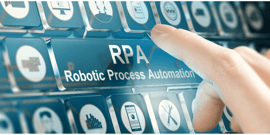BP3 GLOBAL-SERVICE
What are Cognitive Business Operations?
Understanding Cognitive Business Operations: The Future of Digital Process Automation
In today's rapidly evolving business landscape, organizations are continually seeking ways to enhance efficiency and stay ahead of the competition. One of the emerging concepts reshaping how businesses operate is Cognitive Business Operations. In this article, we’ll delve into what Cognitive Business Operations are and how they relate to Digital Process Automation, drawing insights from expert John Reynolds.
What Are Cognitive Business Operations?
Cognitive Business Operations refer to the integration of advanced machine intelligence, such as deep-learning systems, into business processes to make them more efficient and adaptive. Unlike traditional business operations that follow predefined workflows, cognitive systems are designed to learn from data, adapt to new situations, and determine the best course of action in real-time.
As John Reynolds explains:
“In the 21st century, machine intelligence and deep-learning systems are at the stage where we can use those to help make your business operations more efficient.”
The Role of Machine Intelligence
At the core of Cognitive Business Operations is the ability to harness machine intelligence to monitor and analyze vast amounts of operational data. By mining this data, cognitive systems can learn from every aspect of a business’s activities. This continuous learning enables the system to respond effectively to new situations by adjusting its understanding and strategies accordingly.
Reynolds emphasizes that:
“We set up the system to mine the data of your operations, monitor your operations, gather information about everything that goes on in your business, and then we use that as a training set to train the system on how to respond to particular situations.”
Training and Learning in Cognitive Systems
The training process in cognitive systems involves feeding the system with data from various operational scenarios. Each new situation provides a different set of criteria, which the system uses to refine its learning algorithms. This approach results in more robust solutions capable of handling complex and dynamic business environments.
“When you think about it, it’s much more applicable to building more robust situations because every time there’s a new situation in your business, there’s a different set of criteria,” Reynolds notes.
A Shift in Software Development
Implementing Cognitive Business Operations requires a shift in how software developers approach system design. Traditional Business Process Management (BPM) involves defining specific workflows with predetermined steps executed in a particular sequence. However, cognitive systems focus on determining the next best action based on current data, rather than following a fixed sequence.
Reynolds explains:
“In a traditional BPM approach, we would have defined what the workflow was… In a cognitive system, the system itself is going to determine what the next best action is.”
Comparing to Case Management Systems
Cognitive Business Operations share similarities with case management systems, where human operators assess the current state of a case and decide the next steps. The key difference is that in cognitive systems, the machine makes these determinations. This approach emphasizes pre-conditions and adaptability over rigid sequences of operations.
“It’s much more about pre-conditions before something can be done, rather than an absolute sequence of operations,” Reynolds highlights.
The Future of Digital Process Automation
Cognitive Business Operations represent a significant advancement in Digital Process Automation. By leveraging machine learning and artificial intelligence, businesses can create more responsive, efficient, and adaptable operations. This not only enhances performance but also positions organizations to better handle the complexities of modern markets.
VIDEO: An overview of Cognitive Business Operations and how they are related to Digital Process Automation, with expert John Reynolds.
Transcript:
Speaker 1: So, John, this video is gonna be about Cognitive Business Operations. So let's start with, what are Cognitive Business Operations?
John: A Cognitive Business Operation, as opposed to a regular business operation, it really is just that, now, in the 21st century, machine intelligence, deep-learning systems, are at the stage to where we can use those to help make your business operations more efficient.
John: Now, in a cognitive system, what we do is we set up the system to mine the data of your operations, monitor your operations, gather information about everything that goes on in your business, and then we use that as a training set to train the system on how to respond to particular situations.
John: And when you think about it, it's much, much more applicable to building more robust situations because every time there's a new situation in your business, there's a different set of criteria. We can then take that set of criteria and use it to adjust the system's learning.
Speaker 1: So, you're talking about training and learning, but we're software developers. So, how does software development differ when you're building a Cognitive Business Operation?
John: Okay, that's a really good question. What is different? Okay. So, the thing is, when you have a Cognitive system that is able to determine what the next best action is ... In a traditional BPM approach, we would have defined what the workflow was. So, we would have come up with tailored steps for each operation that takes place in a particular sequence. And we would have coded this in such a way that we were expecting the first, second, and third operation.
John: In a cognitive system, the system itself is gonna determine what the next best action is. If you look at that, it's kinda like the difference between building a solution today for a structured process versus building a solution today for a case management system.
John: In a case management system, a human takes a look at the current state of the case and they determine what the next best thing is to do, and then they go and they execute that operation. Well, now, with the Cognitive Business Operation, it's kinda the same thing except instead of a person, the system is determining the next best thing to do.
John: So it's much more about pre-conditions before something can be done, rather than an absolute sequence of operations.


